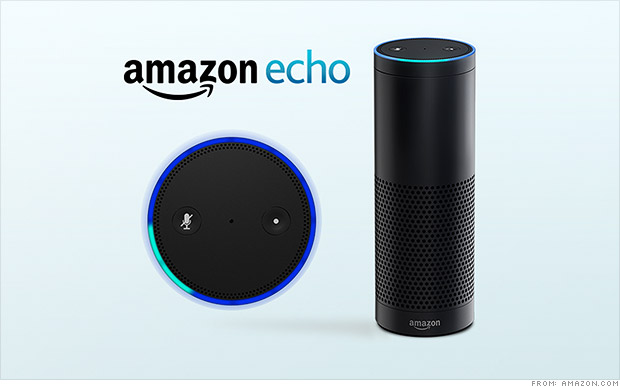Watch The Echo Online Ibtimes
Discounts On i. Pad, Mac. Book, i. Phone, Amazon Echo Devices. Labor Day is on Monday, but there are already many deals on electronics that shoppers can check out now. Best Buy and Amazon have sales on products from Apple, including i. Pads, to Amazon Echo devices.
There are plenty of deals to look out for. Best Buyi. Phone 7 and i. Phone 7 Plus. For those who don't plan to wait for the i. Phone 8, Best Buy is offering up to $3.
Phone 7 and i. Phone 7 Plus. The promo works when signing up for a 2.

Sprint. Samsung Galaxy Note 8. Samsung revealed its Galaxy Note 8 last week, and Best Buy is offering up to $1. Watch Julia X HD 1080P.

Amazon Echo killer? Cortana-powered Invoke smart speaker from Harman Kardon revealed Microsoft hopes late arrival and US-only availability won't be an issue. Best Labor Day weekend deals on electronics at Best Buy and Amazon.
Apple WWDC 2017: How to watch live stream and what to expect Our guide to what to expect from WWDC 2017, including the Siri Speaker, new iPad Pros and more. NASA astronaut and biochemist Peggy Whitson will return to Earth as the planet’s new record holder for longest time cumulatively spent on space by an American or a. Since the Echo’s release in 2014, millions of people have given in to Amazon’s nonstop advertising and welcomed Alexa into their homes. Amazon’s original sell. Apple has released HomePod’s firmware and it reveals new details about the company’s upcoming Amazon Echo rival.
Buyers also get a $3. Samsung 1. 28. GB memory card and a wireless charger or Gear 3. The new Galaxy Note 8 sports a 6.
Quad HD+ dual- edge infinity display, the largest display on a premium Samsung device to date. Mac. Book. Best Buy is offering up to $5. Mac. Books, which is a good deal to take advantage of for those going back to school. The 1. 3- inch Mac.
Book Pro with Touch Bar is currently $1,5. The 1. 2- inch Mac. Book with a 5. 12. GB flash storage is on sale for $5. Meanwhile, the 1. GB Mac. Book is on sale for $8.
Shoppers can check out more sales on other Mac. Book models here. Pad. Best Buy is offering $1. Pad Mini 4, down to $2.
The devices have a 1. GB storage, Wi- Fi support, an A8 chip and a 7. Retina display. The i.
Pad is available in Space Gray, Gold and Silver. Beats Solo. 3 Wireless Headphones. The Beats Solo. 3 Wireless Headphones are $1. Best Buy, priced at $1.
The headphones come with a 3. Remote. Talk cable, carrying case and a USB charging cable. The Beats Solo. 3 wireless headphones offer up to 4. Fast Fuel, which provides three hours of playback when charging it for five minutes. Amazon. Oculus Rift. For its Labor Day sale, Amazon is offering $1.
Oculus Rift + Touch VR system, down to $3. The product includes 6 free titles: Robo Recall, Luckyʼs Tale, Quill, Medium, Dead and Buried and Toybox. Amazon Echo. Amazon is slashing the Amazon Echo’s price nearly half off.
The virtual assistant device is now $9. Echo Dot. The online retailer has also cut down the price of the Echo Dot, but not by much since the device is already cheaper than all other Echo gadgets.
The Echo Dot is on sale at $4. Arlo Security Cameras. The Arlo Security System wire- free HD cameras are nearly half off. The five- camera bundle is priced at $3. Amazon, down from $6.
Surprise, Echo Owners, You're Now Part of Amazon's Random Social Network. Since the Echo’s release in 2. Amazon’s nonstop advertising and welcomed Alexa into their homes.
Amazon’s original sell for the always- on, voice- activated device was that users could “ask Echo for information, music, news, sports scores, and weather from across the room and get results or answers instantly.” But in the last couple of months, it has evolved into something else: the hub for Amazon’s new social network. In May, Amazon pushed a software update that added features called “Drop in” and “Alexa calling and messaging,” which let you connect to other people’s Echos. The communal device, used by all members of a given household, suddenly became a telephone and answering machine, much like an old- school landline shared by a family, except this one emits a pulsing yellow light when you have a message. This is a unique aspect to being a consumer of the Internet of Things: The things stay connected to the company you bought them from, which means the company can push down an update from afar and change them into, well, other things. Overnight, the Echo went from being a voice- activated Google search to a device that could be networked to a bunch of other devices.
In order to use the new feature, Echo owners have to open the Amazon Alexa app on their phones and import their contacts, after which they are stored in the Amazon cloud. Amazon then offers up a list of who among their contacts is an Echo owner, and automatically makes all of them part of their network, rather than letting them choose who they actually want to connect with (as most other companies do). Amazon assumed this was the best way to organize its network, apparently not realizing most of us have tons of strangers and randos in our phonebooks. My own list included a couple of ex- boyfriends, a person I stayed with once on Airbnb, current co- workers, former colleagues, and a U. S. senator’s press secretary, who would probably be surprised to learn I knew she had an Echo because I’ve never actually called or talked to her. There was not a single person on the list whose Echo I would want to call.
Instead, it was an uninvited look into the consumption habits of the sundry individuals whose numbers have made their way into my phone over the last 1. When asked about the privacy context collapse involved in revealing your Echo ownership to anyone with your phone number, an Amazon spokesperson emphasized that “calling and messaging via Alexa is an optional feature.”“To import contacts and send voice messages you’ll need to first set up calling/messaging – if you prefer not to use the feature, simply don’t set it up,” the spokesperson wrote via email. Amazon is not the only company to decide that its users should be able to identify other users based solely on knowing their phone numbers. Signal, an encrypted messaging app, also discloses its users this way. It’s why I had the press secretary’s number in my phone—I wanted to find out which senators’ offices were using the secure app.) It makes it easier to connect with other people using the same app, but there’s a privacy trade- off: You only need someone’s phone number to figure out that they’ve bought or downloaded that product.
And that could potentially be used against users. A repressive government, for instance, could find out if activists were using Signal to encrypt their communications. A hacker could find out if a target was using an Echo, in the hopes of using it to invade the person’s network. But Echo users had more immediate concerns when the feature came out. Amazon, new to the social networking game, didn’t realize that some users in its network might not like other users. Those who first turned on Alexa calling, like Elise Oras, discovered that they couldn’t block people from calling their Echo. And once they discovered that, they discovered they couldn’t easily leave the social network.
There is no delete button. To exit Amazon. Echoverse, you have to call Amazon Customer Service and get a real live human being to turn off the feature. It’s still the case two months after its release that you have to make an actual phone call to exit the Echo social ecosystem, but Amazon came to its senses with blocking.
Last month, it gave users the ability to block contacts from calling their Echo; those contacts will still see the person listed but won’t be able to make a call to them or leave them a message. Amazon’s missteps here may not prove to be a big deal to Echo owners.
After all, if they’ve bought a device for their home with an always- on microphone, they’re likely the type of people who aren’t too worried about their privacy. But it’s good to remember, as you ponder whether to buy an internet- connected thermostat, or lamp, or refrigerator: The transformation from a lowly appliance to a node in a vast privacy- demolishing network is just a software update away. This post was produced by the Special Projects Desk of Gizmodo Media Group.